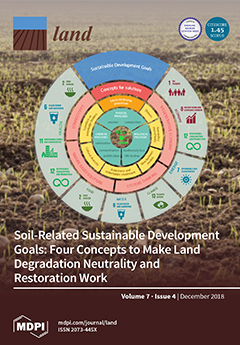Guidelines for equitable and sustainable non-timber forest product management
How can we improve local livelihoods while maintaining forest biodiversity and strengthening sustainable forest management in a socially inclusive and just manner? These guidelines present practical strategies and field examples for the inclusive and sustainable extraction, sale and management of forest products, particularly NTFPs.
Cadenas de valor con enfoque ambiental y cero deforestación en la Amazonía colombiana - Oportunidades y retos para el mejoramiento sostenible de la competitividad regional
La Amazonía colombiana se encuentra en un período clave que exige la evaluación y el fortalecimiento de su proceso de desarrollo.
Estrategia sectorial de la cadena de ganadería doble propósito en Caquetá, con enfoque agroambiental y cero deforestación
Estrategia sectorial de la cadena de productos no maderables del bosque en Guaviare, con enfoque agroambiental y cero deforestación
Can the production of wild forest foods be sustained in timber concessions? Logging and the availability of edible caterpillars hosted by sapelli (Entandrophragma cylindricum) and tali (Erythrophleum suaveolens) trees in the Democratic Republic of Congo
Sapelli (Entandrophragma cylindricum) and tali (Erythrophleum suaveolens) are among the most important timber
species harvested from Congo Basin forests. They also host edible caterpillars, Imbrasia oyemensis and Cirina
forda, respectively, which are important to the nutrition and income of rural and urban populations. This study
Successful community stewardship of tropical forests: Evidence from community forest concessions in Petén, Guatemala
Earth observation, open data and machine learning for near real time threat monitoring of vulnerable plant species
The IUCN data base lists several plant species whose existence is currently threatened by human activities and climatic extremes.
Ensuring the continuation of traditional forest management practices in Myanmar
The Promotion of Indigenous Nature Together (POINT) is a local non-profit organisation and a member of the Asian Indigenous Peoples Pact (AIPP). To deal with the problems caused by the progressive loss of indigenous knowledge, POINT decided to study the traditional forest management practices of the indigenous people living in Myay Latt.
Agriculture-driven deforestation in the tropics from 1990-2015: emissions, trends and uncertainties
Estrategia sectorial de la cadena de ganadería doble propósito en Guaviare, con enfoque agroambiental y cero deforestación
Use of Sentinel-2 and LUCAS Database for the Inventory of Land Use, Land Use Change, and Forestry in Wallonia, Belgium
Due to its cost-effectiveness and repeatability of observations, high resolution optical satellite remote sensing has become a major technology for land use and land cover mapping. However, inventory compilers for the Land Use, Land Use Change, and Forestry (LULUCF) sector are still mostly relying on annual census and periodic surveys for such inventories.


